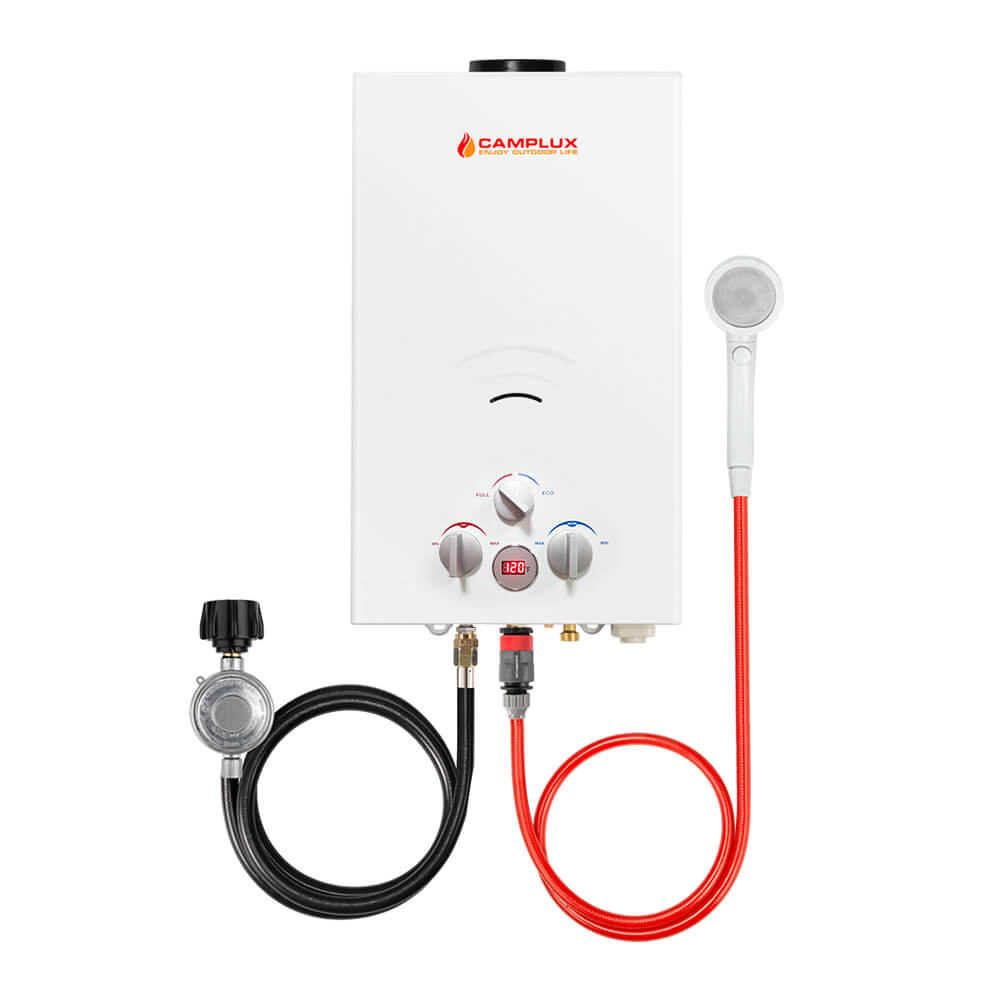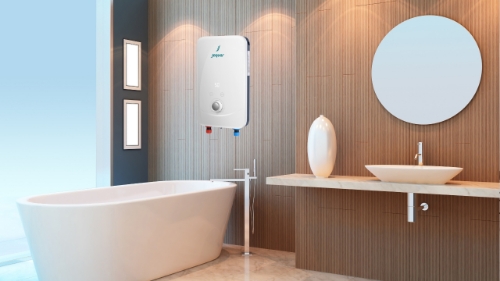What're your beliefs on Unveiling the Hot Trend: The Benefits of Tankless Water?

In a world where convenience and effectiveness preponderate, it's not a surprise that homeowners are constantly looking for smarter means to manage their home's power consumption and convenience. One advancement that has gradually obtained appeal is the tankless hot water heater. Yet what exactly makes these systems attract attention from the standard tank-based versions a lot of us grew up with? Let's dive in and discover the benefits of tankless hot water heater, helping you decide if it's time to make the button in your home.
Intro
Picture this: you enter the shower after a long day, anticipating a calming cascade of hot water, just to be greeted by icy beads since the last individual used everything up. Sound acquainted? Conventional hot water heater keep a fixed quantity of hot water, meaning you go to the grace of that storage tank's supply. Tankless systems, on the other hand, heat water as needed. No more running out mid-shower, no more fumbling with schedules just to make certain warm water is available.
Comprehending Tankless Water Heaters
What Are Tankless Water Heaters?
Tankless water heaters, often called on-demand or instantaneous hot water heater, supply hot water just as it's required. Rather than keeping gallons of pre-heated water, these units kick right into activity the minute you switch on the tap. Water passes through a warm exchanger, heating up in real-time, implying you get a continuous circulation of hot water without the requirement for a big tank resting idly by.
Just how Do They Differ from Typical Solutions?
Conventional heaters hold a tank of warm water, using energy to maintain that container at a consistent temperature level. Tankless systems eliminate the standing supply, cutting down on thrown away power and the bulky impact of a huge cyndrical tube. Essentially, you're updating from a "accumulation" attitude to a "made-to-order" technique.
Common Kinds Of Tankless Systems
Tankless hot water heater generally are available in two selections: gas and electrical. Gas designs tend to provide greater flow rates, ideal for bigger families, while electrical designs usually serve smaller sized homes and are generally less complicated to install. Additionally, some systems are designed for point-of-use (offering one fixture) while others can take care of the whole home's hot water demands.
Key Benefits of Tankless Water Heaters
Energy Performance and Price Savings
No more heating up a giant storage tank's worth of water and keeping it toasty all day. Tankless heating systems lower standby power losses, which can reduce utility bills. While the initial price may be higher, the long-term savings typically validate the investment.
3. Space-Saving Layout
If your home is short on storage space, eliminating the large tank liberates useful space. Tankless devices are compact and can usually be installed on wall surfaces, stashed in edges, or installed in tight utility storage rooms without monopolizing the whole space.
4. Longer Life expectancy
A properly maintained tankless hot water heater can outlive its tank-based relative. Traditional tanks could last 10-15 years, while tankless versions can maintain chugging along for two decades or even more, making them a solid financial investment over time.
1. Unlimited Hot Water Supply
Ever before had to schedule showers so every person gets their reasonable share of hot water? With tankless, that comes to be a thing of the past. As long as the heating system's flow capability isn't gone beyond, you can take back-to-back showers without becoming a popsicle.
5. Improved Water Top Quality
Keeping water in a container can often bring about sediment build-up or a slightly "off" taste. With tankless systems, fresh water is heated up on the spot, decreasing the chances of sediment accumulation and potentially supplying cleaner-tasting water.
Factors to consider Before Switching
Though the benefits are engaging, it's important to take into consideration a few elements prior to completely committing.
Evaluating Your Home's Water Usage Patterns
If your house concurrently uses several components with high warm water demand, make certain the unit's flow rate meets your demands. Understanding your usage patterns aids you pick the ideal dimension and type of tankless heating unit.
Maintenance and Treatment Tips
Tankless systems are relatively reduced maintenance, yet they aren't set-it-and-forget-it home appliances.
Routine Cleansing and Descaling
Hard water minerals can build up in the warm exchanger, affecting effectiveness. Routine descaling (usually suggested yearly) keeps the device performing at peak performance.
Yearly Professional Assessments
A yearly checkup from a specialist guarantees small issues are caught early. They'll evaluate the device's performance, search for leaks, and help maintain optimum performance.
Initial Financial Investment Costs
Tankless heating units generally feature a greater upfront price tag. Between the unit itself and potential setup adjustments, the preliminary cost may offer you sticker shock. But remember to view it as a long-lasting financial investment.
Setup Requirements
Relying on your home's infrastructure, you could require additional electric ability or gas line upgrades. Ensure you recognize the installment needs and seek advice from an expert to avoid shocks.
Guaranteeing Correct Ventilation
For gas designs, correct ventilation is vital to safely eliminate exhaust gases. Make sure venting systems are clean and properly set up to stop any kind of possible safety and security hazards.
Comparing Different Brands and Models
Not all tankless hot water heater are created equal.
Investigating Reliable Makers
Seek reputable brand names with a background of generating top quality devices. A trustworthy supplier often gives much better customer assistance and longer guarantees.
Setup: Do It Yourself or Specialist?
While some home owners delight in dealing with jobs themselves, tankless setup might not be the very best time to burst out the tool kit.
Benefits and drawbacks of Do It Yourself Installation
A DIY set up can conserve money, but it includes dangers. Inaccurate setup can bring about inefficiency or safety worries. If you come in handy and have experience, it might be possible-- however proceed with caution.
Reading Evaluations and Customer Comments
User evaluations and feedback from neighbors or good friends that have actually gone tankless can offer important understandings. Occasionally, real-life experiences can be a lot more telling than advertising and marketing pamphlets.
When to Call a Specialist Plumbing Professional
For the majority of, calling a professional makes certain every little thing's done correctly. An expert plumber comprehends regional codes, sizing requirements, and venting parameters, minimizing the risk of problems.
Maximizing Effectiveness
You've purchased a tankless unit-- currently maximize its effectiveness.
Ideal Temperature Level Settings
The majority of people set their systems between 120-140 F. Readjusting the temperature can improve comfort and financial savings. Experiment to locate a wonderful place that does not waste power.
Coupling With Low-Flow Fixtures
Intend to stretch your unit's abilities? Take into consideration mounting low-flow showerheads and taps. They reduce water use, allowing your tankless system to deliver a constant stream of warm water without stressing.
Environmental Impact
Tankless water heaters line up with greener living objectives.
Decreased Carbon Footprint
By using less power and just heating water as needed, tankless systems can decrease your home's carbon impact, lowering your ecological influence.
Preserving Natural Resources
Much less power intake and much less thrown away warm water equate into fewer natural deposits being used, an environmental win-win.
That Profits A Lot Of from Tankless Heaters?
The appeal of tankless heating systems is that they can suit a range of homes.
Huge Family Members vs. Single Residents
Large family members might like the limitless warm water supply, while solitary occupants appreciate the energy financial savings from not warming an entire container for just a single person's early morning shower.
House Owners with Limited Space
If your home is short on square footage, shedding the bulky tank liberates room for other fundamentals-- or perhaps simply much more elbow room.
Eco-Conscious Consumers
Going tankless aligns with environmentally friendly worths, guaranteeing you're not squandering power or resources.
Future Fads in Tankless Hot Water Heater
The world of home appliances is ever-evolving, and tankless hot water heater are no exception.
Advancements in Innovation
R&D is regularly enhancing warm exchangers, making devices a lot more reliable and sturdy. Future designs might be also quieter, a lot more compact, and far better fit for differing climates.
Smart Home Combination
Picture changing your water heater's temperature level by means of an application or receiving upkeep signals on your phone. As clever home technology advancements, we'll see even more connection and comfort.
Verdict
Selecting a tankless water heater is more than simply updating your home's warm water system; it's purchasing long-lasting comfort, power performance, and a greener way of life. By considering your home's water use, bearing in mind setup needs, and committing to normal upkeep, you can take pleasure in a constant stream of hot water without the luggage of a cumbersome tank. As innovation evolves, you can anticipate also smarter, a lot more effective tankless solutions that not just make your life simpler but likewise profit the world.
5 Benefits of Tankless Water Heaters
Save Valuable Space
Since tankless water heaters do not have a massive 40+ gallon tank of water, they are considerably smaller and can fit in more narrow spaces in your home.
If you are working with limited square footage, a tankless water heater will still provide you with the hot water you need while taking up significantly less space in your home. While the exact size of a tankless water heater varies depending on the brand, some are as small as a carry-on suitcase.
Endless Supply of Hot Water
While a traditional water heater preheats and stores your water in the tank, tankless water heaters do not rely on a reservoir system.
This means that they do not run out of hot water like traditional water heaters since they make hot water as needed. Traditional water heaters need to stop and reheat water when the tank inevitably runs out, but tankless water heaters do not have this issue.
Provide Warm Water On-Demand
As mentioned above, tankless water heaters do not preheat a certain amount of water and then store it in a massive tank to be used later. An advantage of installing a tankless water heater includes water being heated instantly whenever you turn on the faucet.
When you turn on the water, it will travel through a heat exchanger in the unit and be heated with either an electric element or a natural gas burner. Gone are the days of having to ration out your hot water to make sure that you do not run out.
Longer Life Cycle
Not only do tankless water heaters provide an endless supply of hot water for your home whenever you want it, but these units tend to have a longer lifespan than water heaters with tanks.
Tanked water heaters have an average lifespan of around 10 years, as the tank is prone to corrosion, leading to serious issues. In comparison, tankless water heaters can last for around 15 to 20 years with the proper maintenance and tune-ups.
Energy Efficient
Compared to traditional water heaters, tankless water heaters are a more energy-efficient water heating option for your home. Tank water heaters must heat and reheat the water stored in the tank throughout the day, even if you are not home.
This energy use adds up over time, leading to an increase in your energy bills and added strain on your unit. A benefit of buying a tankless water heater includes saving money since it only operates when you turn on the hot water. Since it only heats up as needed, this can decrease your energy bills and save you money in the long run.
https://callrandazzo.com/blog/5-benefits-of-tankless-water-heaters/

I am very excited about Six Benefits of a Tankless Hot Water Heater and I hope you appreciated my article. Do you know somebody else who is curious about the subject? Why not share it. Thanks so much for going through it.
Check This Out